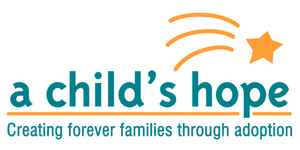If you’re pregnant and considering all of your options, it’s crucial to prioritize your health and the health of your baby. Regular prenatal visits are essential for monitoring your pregnancy and ensuring everything progresses smoothly. Here’s what you need to know about how often you’ll need to visit the doctor and what happens during those visits.
How Often Will I Need to See the Doctor?
For most healthy women with no complications, the typical prenatal care schedule includes about 15 visits and two ultrasounds if you start medical care early in your pregnancy:
- First Trimester (Weeks 4-28): Once a month
- Second Trimester (Weeks 28-36): Every two weeks
- Third Trimester (Weeks 36-Birth): Every week
If you begin care later in the pregnancy, you’ll have fewer visits, but you may need additional appointments if any physical concerns arise.
What Happens During Prenatal Visits?
Your prenatal visits are designed to ensure both you and your baby are healthy. Here’s a breakdown of what typically happens during these appointments:
- Initial Appointment: This first visit confirms your pregnancy and estimates your due date based on your last menstrual period. It’s often the longest visit, including a physical exam, a blood draw, an ultrasound, and a detailed medical history review.
- Routine Check-Ups: At every visit, expect your weight, blood pressure, heart rate, and your baby’s heart rate to be checked. Monitoring blood pressure is crucial as high blood pressure is a common and serious complication during pregnancy.
- Generally, 2 Ultrasounds:
- First Ultrasound (12-14 weeks): Confirms due date and checks initial development.
- Anatomy Ultrasound (18-24 weeks): Examines the baby’s anatomy for any abnormalities.
- Blood Tests: Typically, there are two blood draws to screen for abnormalities and gestational diabetes. Testing for gestational diabetes, which occurs around 18-24 weeks, involves drinking a glucose solution followed by a blood draw to check your blood sugar levels.
When to Call Your Doctor? Contact your Doctor if you experience:
- Cramping or bleeding
- Depression
- Severe lower back pain
- Swelling of arms and legs
Most doctor’s offices have nurses or medical staff available to address your concerns and advise whether you need an office visit or hospital care.
Making the Most of Your Prenatal Visits:
Make a list of questions to bring to each appointment and don’t hesitate to call your doctor’s office between visits if you have any concerns. Regular prenatal care is the best way to ensure a safe pregnancy and delivery.
This guide, provided by A Child’s Hope adoption agency in North Carolina, emphasizes the importance of early detection and proper prenatal care for both maternal and infant health. If you suspect you might be pregnant, don’t hesitate to take a test and seek medical advice, or contact the agency for personalized care and support. TEXT PREGNANT to 919-971-4396, we are happy to talk to you confidentially.
About E. Parker Herring: An attorney and mother of three children, Parker has a deep respect and understanding of family law and the adoption process (for which she’s adopted two children of her own). She is the founder and director of A Child’s Hope, a North Carolina licensed adoption agency located in Raleigh that focuses on matching birth mothers and families looking to adopt. A Child’s Hope has placed 470 children since 2000 and is the only North Carolina domestic adoption agency directed by an attorney. For a confidential adoption counselor, TEXT PREGNANT to 919-971-4396.
